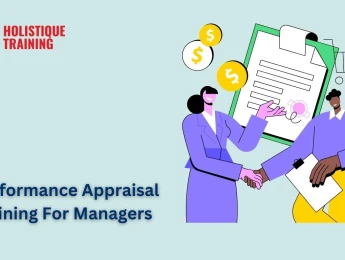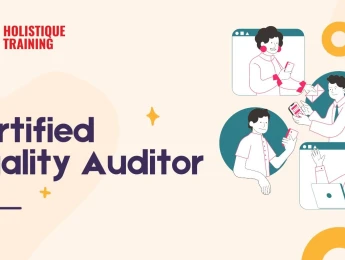Performance management in a healthcare setting is indispensable for fostering a culture of excellence and achieving optimal patient outcomes. It serves as a structured and systematic approach to monitoring, evaluating, and enhancing the performance of healthcare professionals, teams, and the overall organisation.
By establishing clear performance expectations and regularly assessing individual and collective achievements, healthcare providers can identify areas for improvement and implement targeted interventions. This process ensures that healthcare practitioners meet industry standards and contributes to the continuous enhancement of clinical practices, patient care delivery, and organisational effectiveness.
Performance management facilitates the identification of high-performing individuals and teams, enabling recognition and incentivising a commitment to excellence. In the dynamic and complex landscape of healthcare, effective performance management is a strategic tool that aligns organisational goals with the delivery of high-quality care, ultimately leading to improved patient satisfaction, better outcomes, and the overall success of healthcare organisations.
This course will delve into organisational performance management in addition to individual and team performance, emphasising compliance with regulatory standards, accreditation requirements, and the achievement of quality benchmarks. Participants will be equipped to navigate the complex regulatory landscape, ensuring that healthcare organisations meet and exceed industry standards.
Upon completion of this course, participants will be able to:
- Review the current challenges in your healthcare environment.
- Understand the improvements that need to be made.
- Pitch new technologies and systems to implement positive change.
- Assess the impacts of changes on your organisation.
- Manage underperformance in the right way to learn lessons.
- Discover innovative ways to highlight performance.
- Reward team behaviour for continuous improvement.
- Create communication pathways within your industry for shared learning.
This course is designed for anyone who aims for performance improvement within a healthcare setting. It would be most beneficial for:
- Managing Executives in the Healthcare Industry
- Practice Managers
- Healthcare Professionals
- Healthcare Managers
- Quality Assessors
- Regulatory Authorities
- Project Managers
- Performance Managers
- Human Resources
This course uses a variety of adult learning styles to aid full understanding and comprehension. Participants will review videos based on the common challenges within a healthcare setting and undergo role-play exercises in various situations to understand the best ways to manage performance.
Day 5 of each course is reserved for a Q&A session, which may occur off-site. For 10-day courses, this also applies to day 10
Section 1: The Current State of Healthcare Performance
- Assessing the current landscape and challenges in healthcare performance.
- Analysing key performance indicators (KPIs) for healthcare organisations.
- Examining healthcare delivery models and their implications for performance.
- Evaluating the role of healthcare policies and regulations in shaping performance.
Section 2: Transforming Healthcare & Increasing Quality
- Examining the impact of demographic trends and population ageing on healthcare performance.
- Analysing the influence of cultural competency and diversity considerations on healthcare outcomes and performance
- Evaluating the role of patient engagement and shared decision-making in healthcare performance.
Section 3: Technology and High-Performance Monitoring
- Understanding the impact of technological advancements on healthcare performance.
- Assessing the integration of data analytics in healthcare performance measurement.
- Analysing the use of electronic health records (EHRs) in improving healthcare efficiency and performance.
Section 4: Frontline Leadership
- Effective communication strategies for frontline leaders in healthcare.
- Building and leading high-performing healthcare teams.
- Conflict resolution skills for healthcare leaders.
- Time management and prioritisation in a healthcare environment.
- Decision-making and problem-solving for frontline leaders.
- Emotional intelligence for healthcare leadership.
- Managing change and adaptation in healthcare settings.
Section 5: Shared Experiences & Performance Improvements
- Patient-centred care and customer service excellence.
- Ethical leadership in healthcare.
- Stress management for frontline leaders in healthcare.
- Performance metrics and quality improvement in healthcare leadership.
- Building a culture of accountability in healthcare settings.
- Leadership's role in performance monitoring and improvement.
- Engaging frontline staff in the performance monitoring process.
- Training and development for continuous performance improvement.
Section 6: Dealing with Pressure
- Advocating for resources and support to meet targets.
- Fostering a positive work environment amidst pressure.
- Leadership strategies for supporting staff under target stress.
- Celebrating achievements and milestones in targeted environments.
- Promoting work-life balance in high-pressure healthcare roles.
Section 7: Handling Underperformance
- Conflict resolution skills in dealing with underperformance
- Addressing underperformance as a team and building a collaborative culture.
- Continuous training and skill development opportunities.
- Implementing recognition and rewards for improved performance.
- Effective use of performance improvement tools and resources.
- Providing emotional support for underperforming healthcare professionals.
- Addressing underperformance in a culturally sensitive manner.
- Continuous monitoring and follow-up for sustained improvement.
Upon successful completion of this training course, delegates will be awarded a Holistique Training Certificate of Completion. For those who attend and complete the online training course, a Holistique Training e-Certificate will be provided.
Holistique Training Certificates are accredited by the British Assessment Council (BAC) and The CPD Certification Service (CPD), and are certified under ISO 9001, ISO 21001, and ISO 29993 standards.
CPD credits for this course are granted by our Certificates and will be reflected on the Holistique Training Certificate of Completion. In accordance with the standards of The CPD Certification Service, one CPD credit is awarded per hour of course attendance. A maximum of 50 CPD credits can be claimed for any single course we currently offer.
- Course Code IND05-138
- Course Format Classroom, Online,
- Duration 5 days














